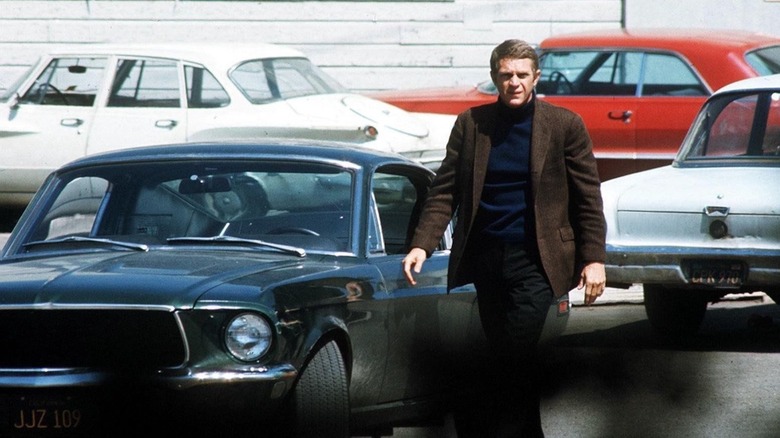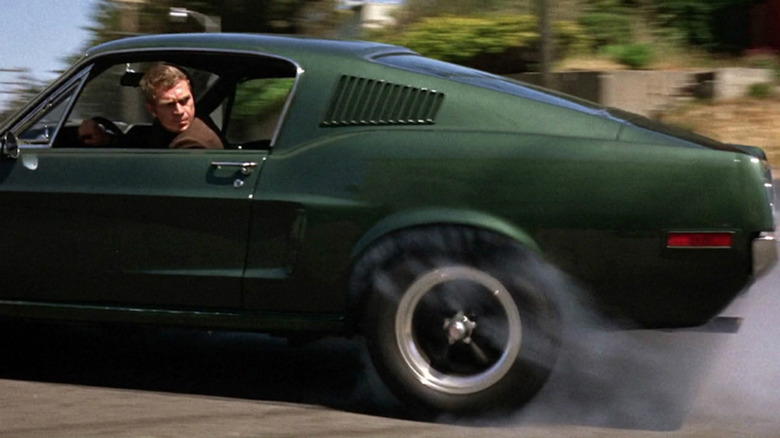Steve McQueen Wouldn't Let The Studio Take His 'Soul' While Shooting Bullitt
Steve McQueen didn't become the epitome of Hollywood cool by playing it safe. Having survived a rough childhood, during which he was beaten repeatedly by his stepfather, McQueen discovered the twin passions of acting and motor racing. The former brought him celebrity, while the latter gave him an air of recklessness. He raced cars and motorcycles all over the world, and won his share of trophies. And as is part of the deal when you slam the pedal to the medal, he endured his share of crashes.
When McQueen hit the big time as a movie star, his need for speed became a headache for studios and movie producers. When he wasn't on set, he was liable to get behind the wheel of a Porsche 908 or hop on a BSA Hornet, and roar off into the horizon. This was his right as a free man, but he didn't make movies for free; indeed, he was, at one point, the highest paid actor in the industry. If he went down, he was going to take an entire production with him, or at least cause delays that would cause the budget to balloon.
Warner Bros. was well aware of McQueen's off-set activities when Peter Yates cast him as the title detective in "Bullitt," and they had no intention of losing their leading man to a crash.
If you don't let McQueen race, you don't get McQueen
According to the AFI Catalog, McQueen was already placing himself in harm's way by doing his own stunts. During two weeks of shooting at the San Francisco International Airport, the star had to run under a taxiing Pan-Am 707 jet, which emitted exhaust temperatures of up to 240 degrees Fahrenheit. "The vibration tweaked my neck a little," said McQueen. "You've got to open your mouth and hold your ears."
McQueen also did much of his own driving during the shoot. One scene required him to speed across the Golden Gate Bridge at 100 miles-per-hour. This was unnerving enough for the studio, so they hit their star with an insurance form that forbade him from racing cars or motorcycles throughout principal photography. McQueen told them precisely what they could do with that form. "There are some things that aren't for sale," he said. "And one of 'em is my soul."
McQueen might've given WB a load of agita during the shoot, but the risk paid off big time. "Bullitt" grossed $42 million at the U.S. box office, making it the fourth highest grossing movie of 1968 (ahead of such classics as "Rosemary's Baby" and "Planet of the Apes"). McQueen was now the most in-demand actor alive, and no studio was about to run him off a project by prohibiting the pursuit of his other passion.

